[ad_1]
Noise-cancelling headphones are one of the most popular types of cans, and for good reason. They block out ambient noise that can distract from you enjoying your favorite tunes. While they’re particularly useful for air travel and daily commutes—especially via mass transit—they’re also great at isolating you from at-home noise pollution, whether that be the whoosh of your HVAC system, the whir of your computer’s cooling fans, or your neighbor’s lawn mower.
Updated June 16, 2022 to add a link to our Libratone Air+ (2nd Gen) review. These noise-cancelling true wireless earbuds delivery good sonic performances and very good noise cancellation, but their $229 asking price will get you the far superior Sony WF-1000XM4.
Sony WH-1000XM5 — Best over-ear noise-cancelling headphone
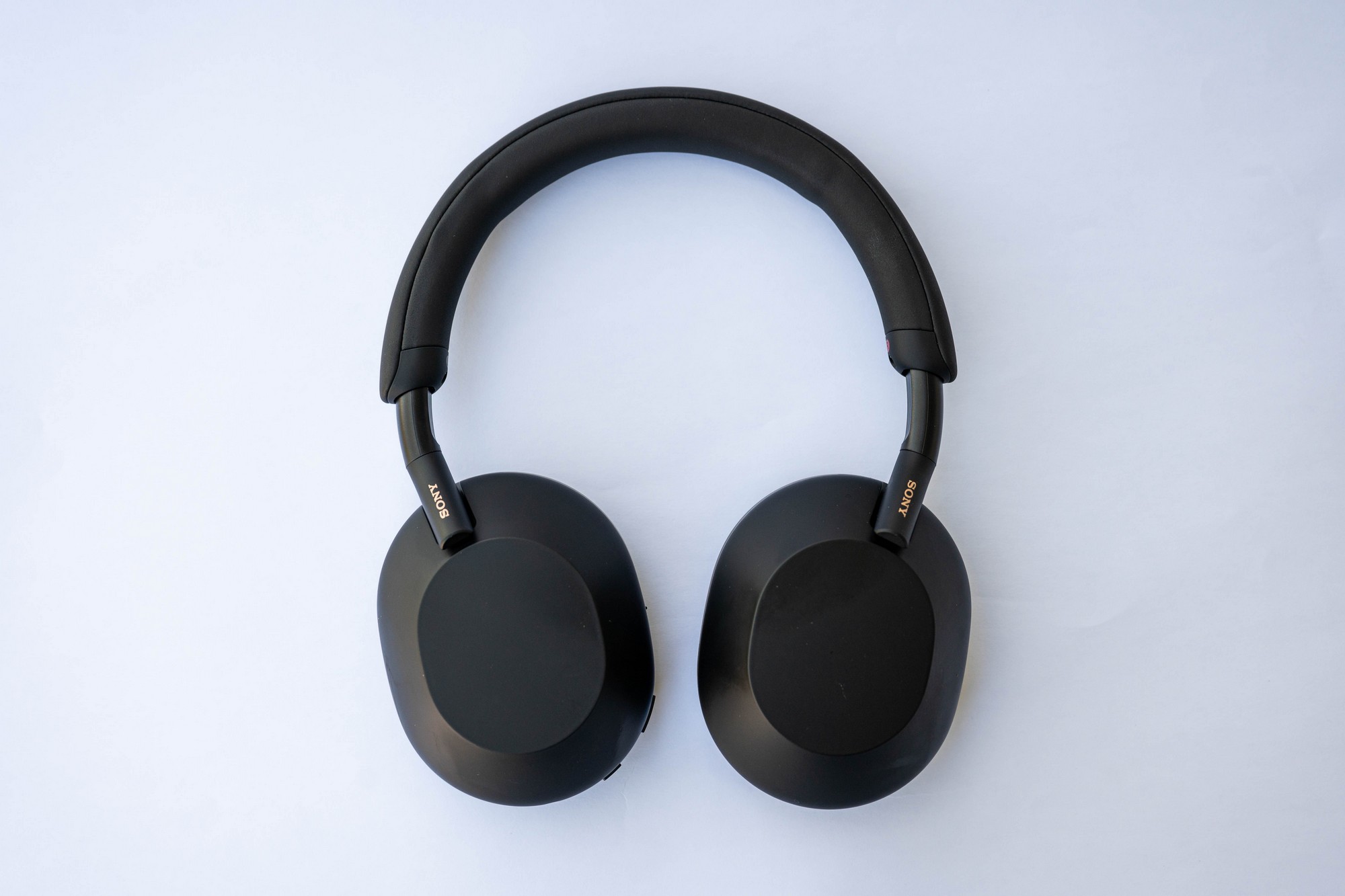
Pros
- New carbon fiber driver delivers intoxicating sound
- Best-in-class noise cancellation is better than ever
- Outstanding adaptive noise-cancelling performance
- Beam-forming mics make near-perfect calls in noisy environments
Cons
- Noise cancellation subject to the occasional audible artifact
- No support for aptX codecs
Sony didn’t just refine its previous generation of noise-cancelling headphones, they redefined what was possible. The WH-1000XM5 are the finest noise-cancelling headphones Sony has ever made, and they’re the best noise-cancelling headphones we’ve ever reviewed. They’re supremely comfortable to wear for long listening sessions, the deliver unparalleled noise cancellation, and–most importantly–the sound absolutely fantastic. These are the noise-cancelling over-ear headphones to beat.
Read our full
Sony WH-1000XM5 review
Bowers & Wilkins PX7 Carbon Edition — Best over-ear noise-cancelling headphone, runner-up
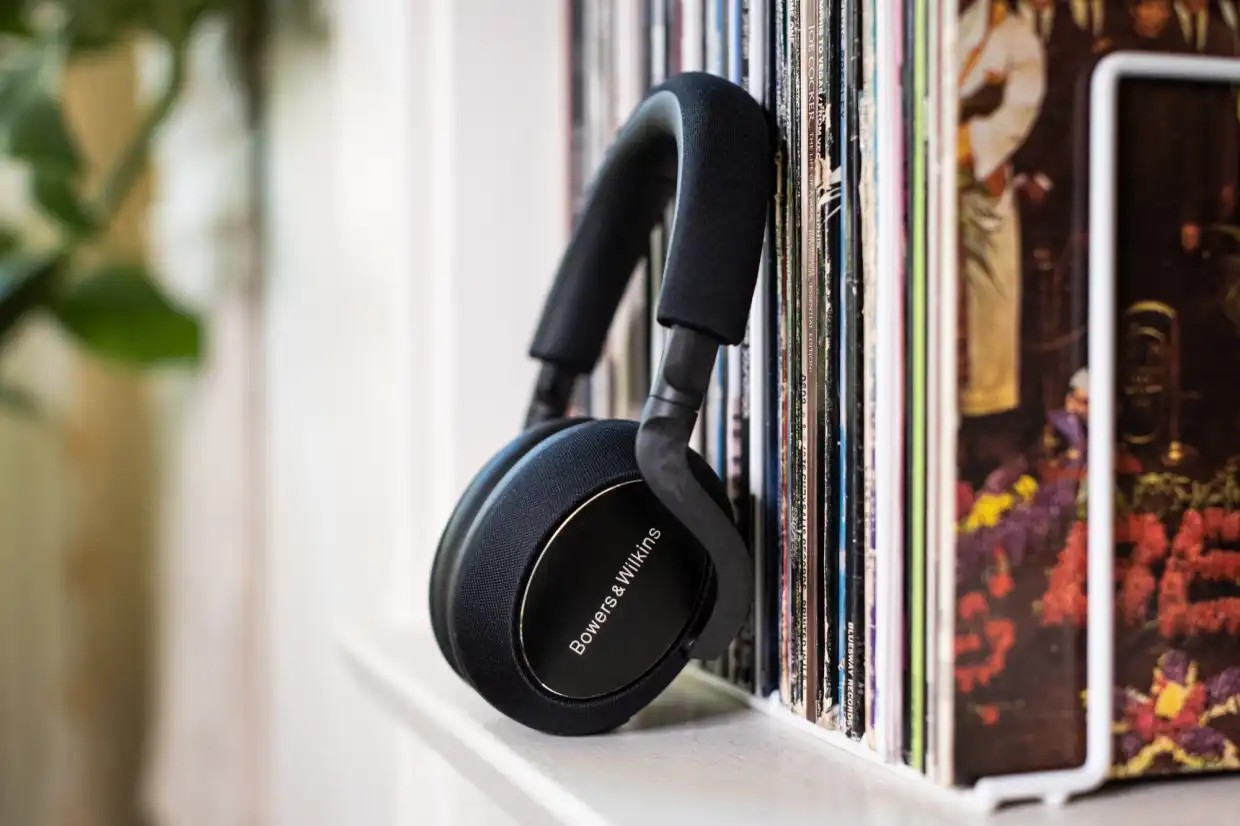
Pros
- Stylish design
- Great noise cancelling
- Highly accurate audio reproduction
- Lightweight and comfortable
Cons
- Missing some of the bells and whistles the competition has
- Ear pad seal can be a problem for people who wear eyeglasses
- They don’t fold as compactly as some other headphones
Bowers & Wilkins introduced its PX7 noise-cancelling headphone in 2019, but this Carbon Edition was introduced in 2020. It features a new finish and an even prettier design. Sonically accurate active noise-cancelling headphones might sound like an oxymoron, but leave it to the engineers at B&W to pull it off. All that said, plenty of buyers will prefer Sony’s less-luxurious, but superior in terms of noise cancelling WH-1000XM5.
Read our full
Bowers & Wilkins PX7 Carbon Edition review
Wyze Noise-Cancelling Headphones — Best budget-priced over-ear noise-cancelling headphone
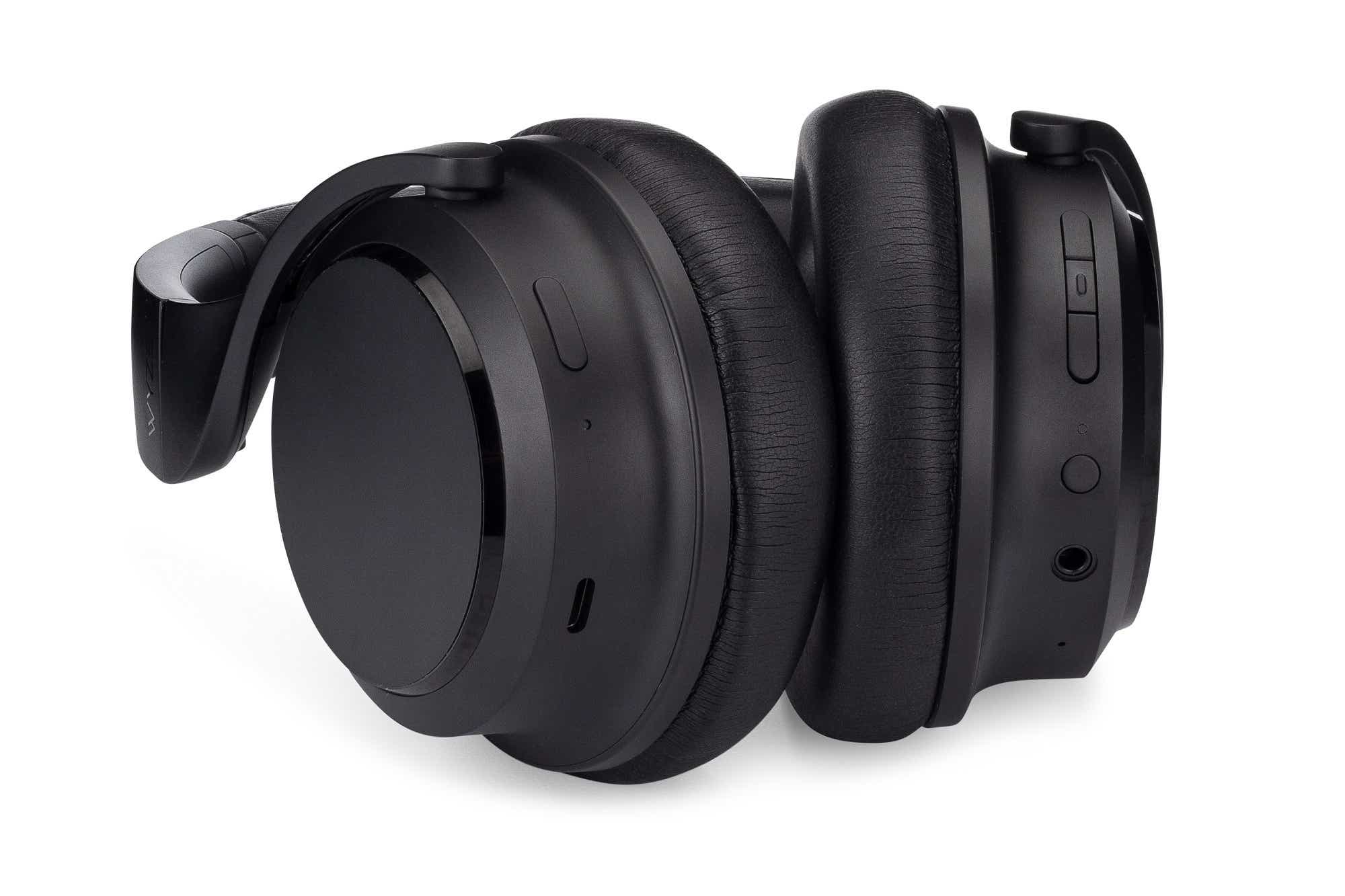
Pros
- Excellent active and passive noise cancellation
- Super comfortable
- Very good sound overall
- Extremely affordable
Cons
- Tiny degradation in frequency response when using active noise cancellation
- 1/4-inch and airline adapters not included
MSRP:
Price when reviewed: $59.99; price as of May 16, 2022: $79.99
It’s hard to believe how inexpensive these noise-cancelling Bluetooth headphones are, but that’s par for the course for Wyze Labs, a company that never seems to fail to package the most bang for the buck in every product they make. While their audio quality doesn’t compete with the higher-end models, and they might not be as durable as some of the more expensive brands, you won’t be too upset if they break and need to be replaced after a few years.
Read our full
Wyze Noise-Cancelling Headphones review
Anker Soundcore Life Q35 — Best budget-priced over-ear noise-cancelling headphone, runner-up
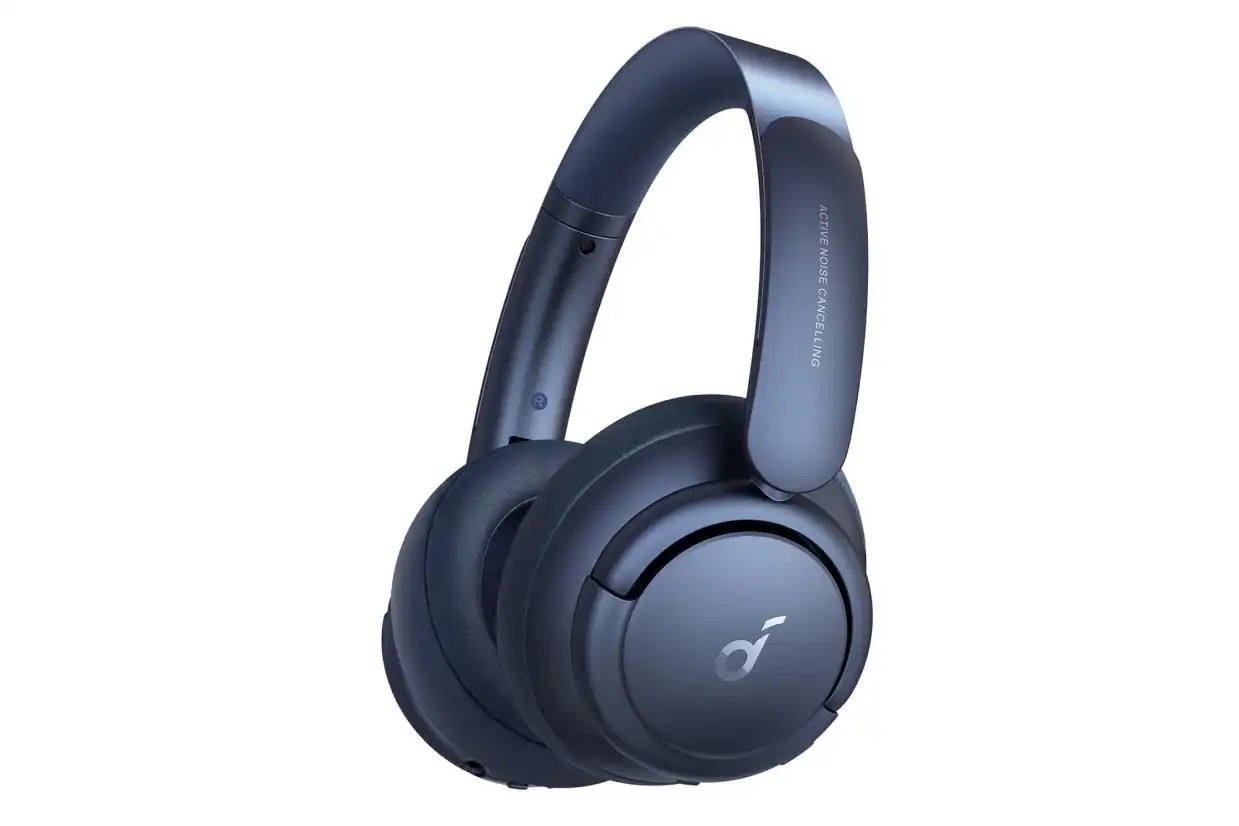
Pros
- Excellent active noise cancellation
- Good-looking, light, and comfortable
- App with EQ and sleep noises
- Affordable for the features and sound delivered
Cons
- Mid-range definition could be better
- Could be better EQ’d out of the box
Wyze Labs beats Anker on price, but the Soundcore Life Q35 delivers excellent noise-cancellation and very good sound. But if you want to get the most out of these cans, do yourself a favor and download Anker’s app and spend some quality time EQ-ing them before you get into your first listening session.
Read our full
Anker Soundcore Life Q35 review
Sony WF-1000XM4 — Best true wireless noise-cancelling headphone
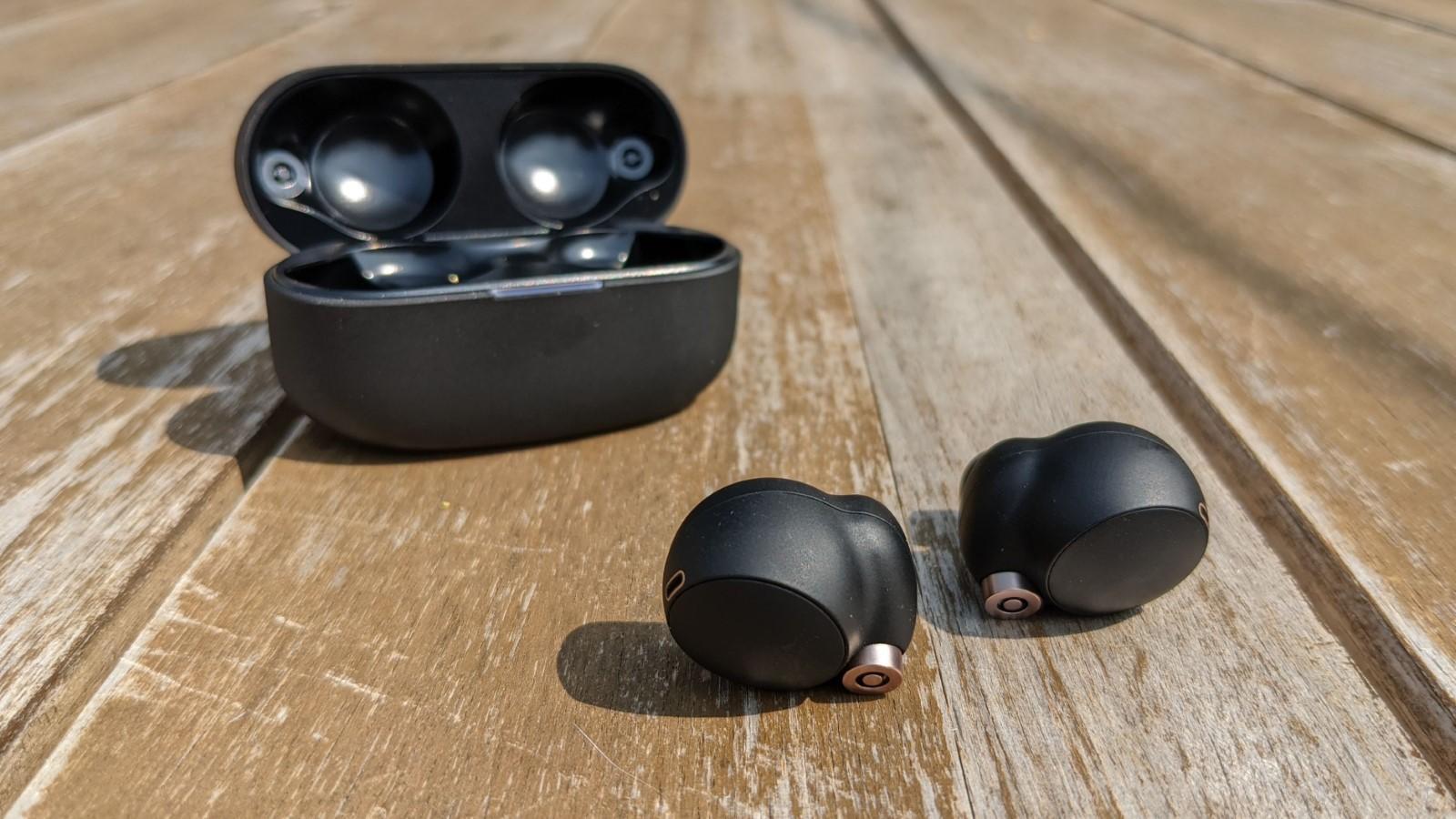
Pros
- Exceptionally rich, mature, and reliable tech
- Best-in-class noise cancelling and adaptive noise cancelling
- Superb sound signature
- Solid, secure fit
- Long battery life
Cons
- Adaptive sound control can be problematic on phone calls
- No support for aptX codecs
Sony’s true wireless headphones are a phenomenal choice for anyone looking for active noise-cancellation from a high-end in-ear headphone. Boasting exceptional performance with music and phone calls, an impeccable fit, and–of course–best-in-class active and adaptive noise cancellation, no other manufacturer can beat Sony’s effort today. Let’s see how long that situation lasts.
Read our full
Sony WF-1000XM4 review
1More ComfoBuds Mini — Best budget-priced true wireless noise-cancelling headphone
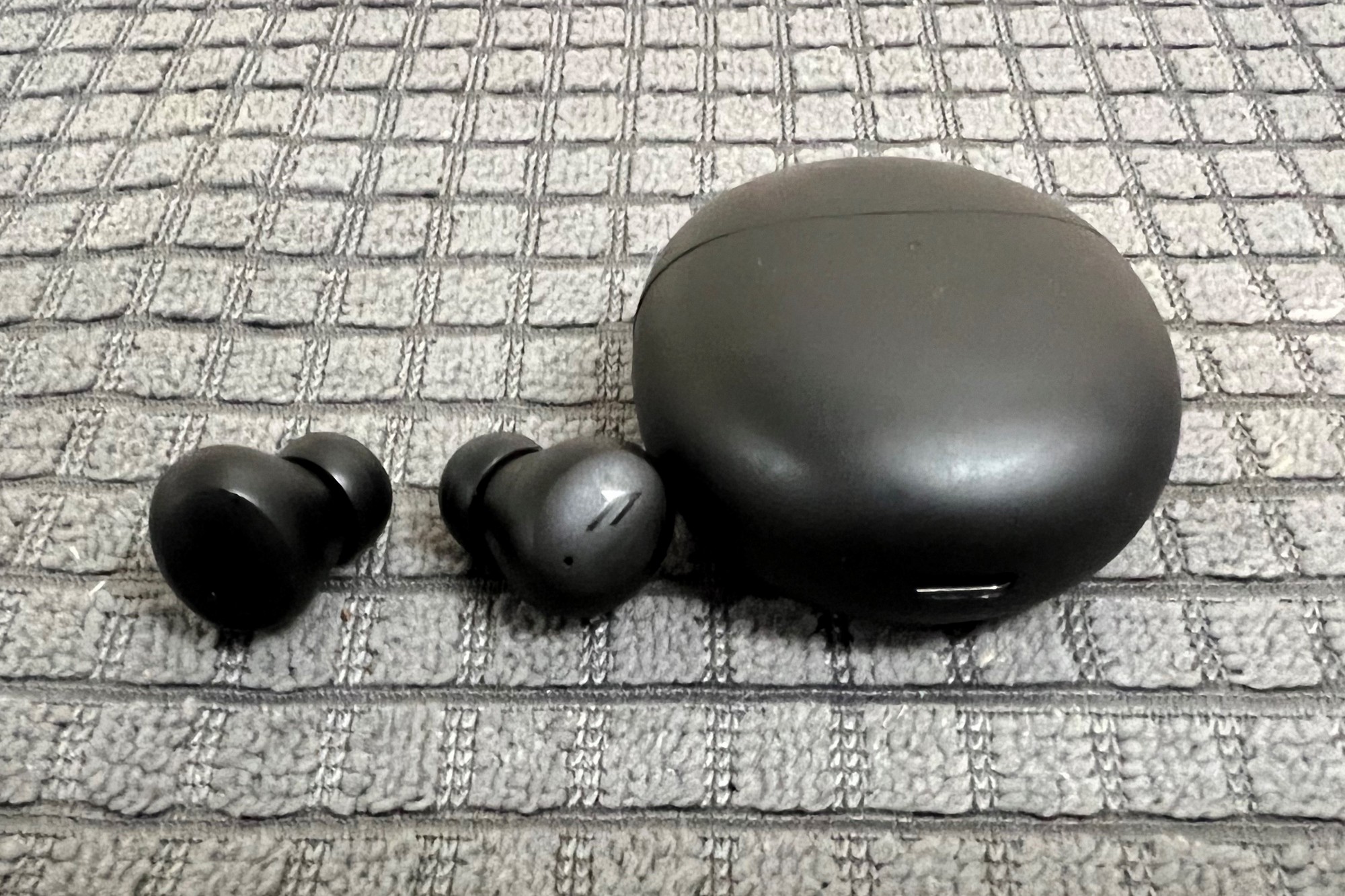
Pros
- Incredibly small
- Amazingly comfortable
- SoundID creates a personalized audio profile
Cons
- So small they’re easy to misplace
- So tiny that pets and toddlers could mistake them for a snack
- Can’t tweak equalization outside of the SoundID process
The 1More ComfoBuds Mini noise-cancelling true wireless headphones offer excellent audio quality and active noise cancelling for the price, and they’re a godsend for anyone with small ears who’s had trouble finding in-ear headphones that fit well.
Read our full
1More ComfoBuds Mini review
Bang & Olufsen Beoplay Portal — Best over-ear noise-cancelling headphone for gamers
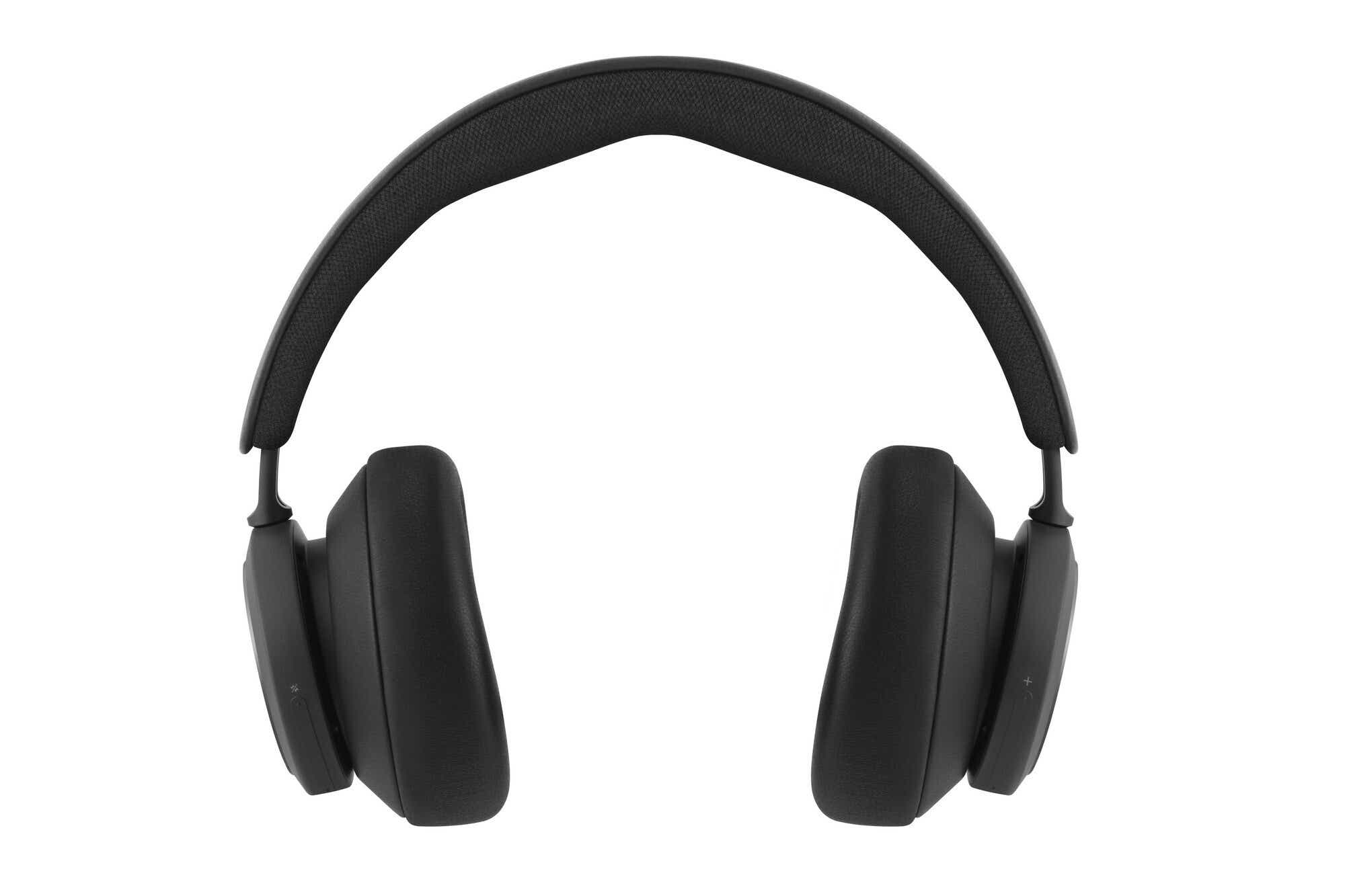
Pros
- Intoxicating audio performance
- Superb adaptive noise cancelling and transparency
- Premium build, materials, and feel
- Touch Bars for volume and noise-cancelling
- Xbox-specific technologies for gaming enthusiasts
Cons
- Cannot be used as a passive headphone
- No support for Alexa, Google Assistant, or Siri
- A $500 headphone should come with a carrying case or at least a pouch
Sony and Bowers & Wilkins might win in terms of their active noise cancelling tech, but Bang & Olufsen comes close while blending stupendous audio performance with technology that gamers—especially Xbox and Windows gamers—won’t find anywhere else. And they wrap it all in an exquisite package of leather, lambskin, and aluminum.
Read our full
Bang & Olufsen Beoplay Portal review
Headphones with active noise cancellation (ANC) identify sound waves associated with noise and electronically generate an inverse sound wave that cancels it out. Here’s what we mean: A sound wave is similar to the ripples in a pond. Toss a pebble in the pond, then introduce ripples of the opposite pattern, and you’ll smooth the pond’s surface. Active noise cancellation (ANC) works in a similar manner. Microphones mounted on the headphone analyze ambient sound waves and then produce inverse sound waves that will cancel them out.
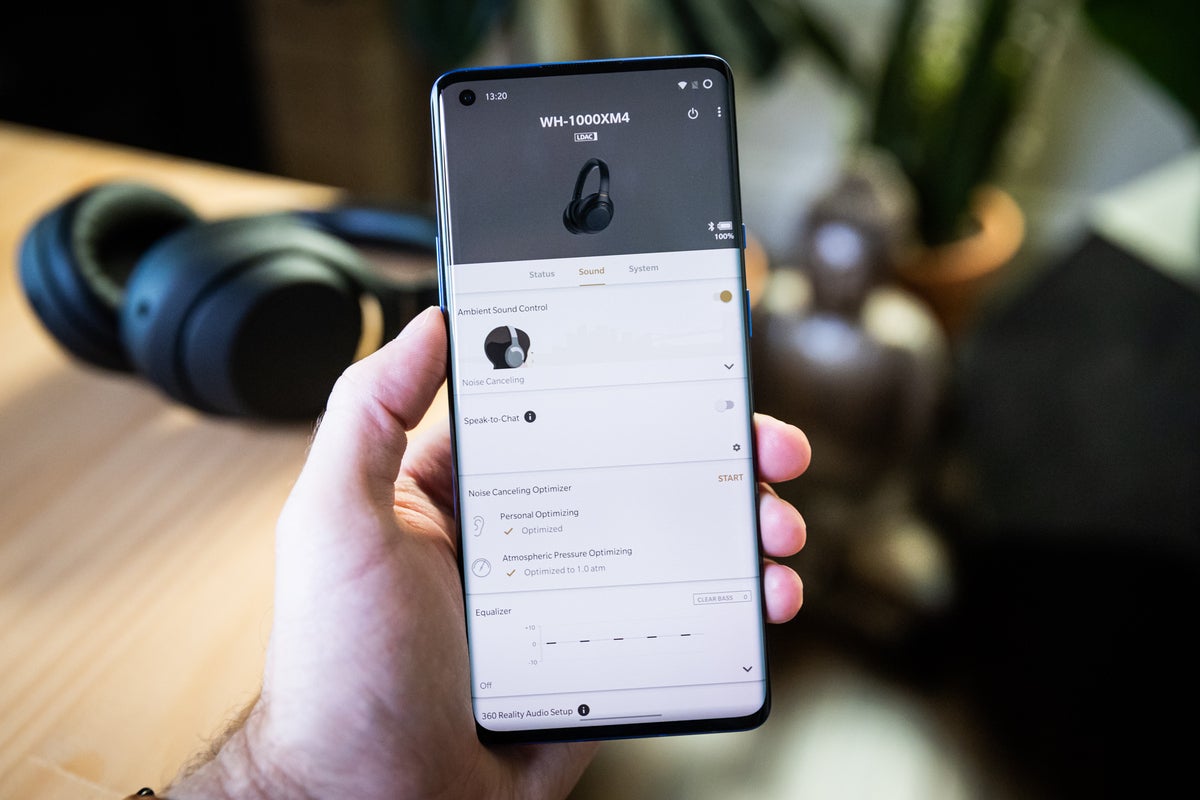
Most ANC headphone manufacturers, including Sony, provide a mobile app that lets you tailor their headphone’s noise cancellation to your preferences.
As you might expect, the ANC technologies from some manufacturers are incredibly effective; others, less so. We’ve tested models from AKG, Bose, Bowers & Wilkins, JBL, Libratone, and Sony and found them to be very good.
Adaptive noise cancellation is the most sophisticated type of ANC. It operates on the same principles, but adapts to your surroundings to apply more or less of the effect and to even bring in sounds from the outside world.
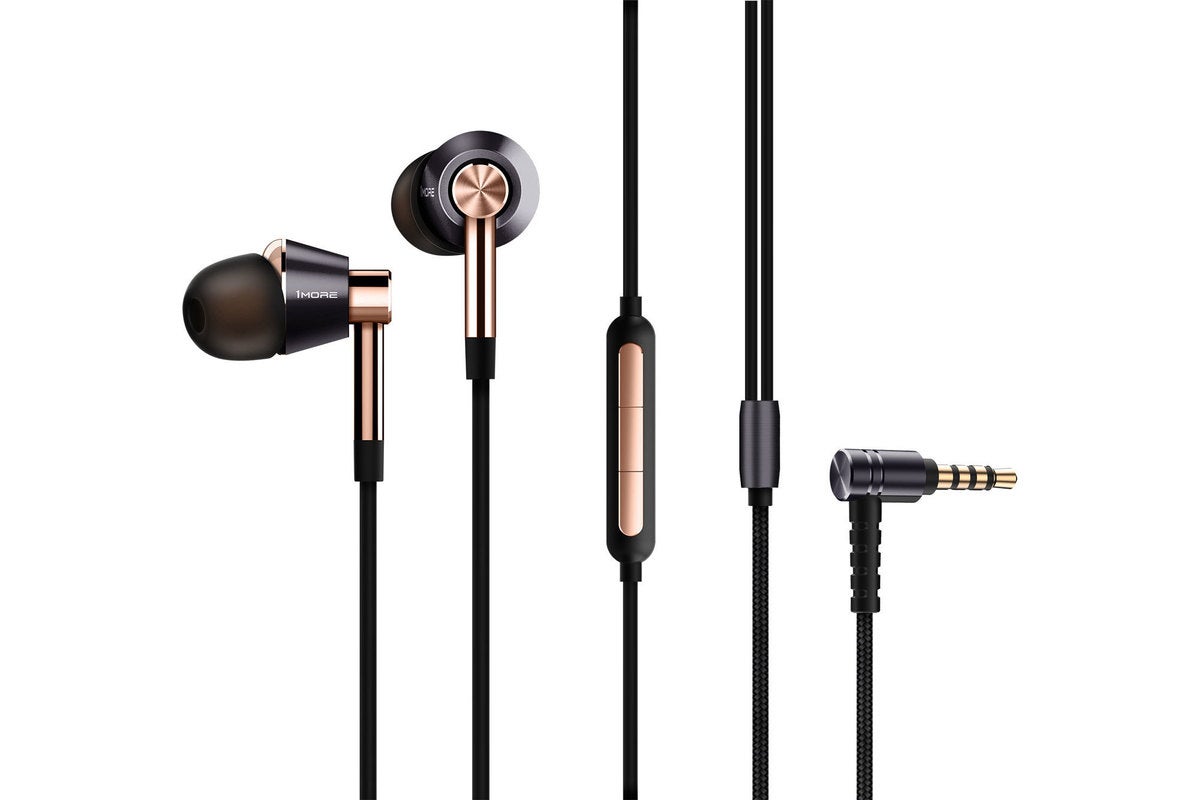
There’s more than one way to block ambient noise, closed-back over-ear headphones and in-ear headphones like the iMore Triple Driver shown here, can perform the task without introducing inverse soundwaves. And in many cases, without batteries.
Some adaptive noise-cancelling solutions even take into account how fast you’re moving, the air pressure around you, and whether you’re likely in a plane, taking a walk, or holding a conversation. Many operate in conjunction with a mobile app on your smartphone.
Some individuals find that ANC headphones exert pressure on their ears, creating a similar sensation to being under water. If you find ANC headphones to be uncomfortable, you’ll prefer a model with good passive noise cancellation. That type of headphone deliver other benefits, too: They’re the least likely to color the music you’re listening to, and they don’t need batteries. On the other hand, not all headphones with passive noise cancellation are wireless.
[ad_2]
Source link










More Stories
Education Technology Integration – Computer Microscopes Are Enhancing the Science Classroom
History: Computers Components and Technology
Considerations for Selling Used Computers